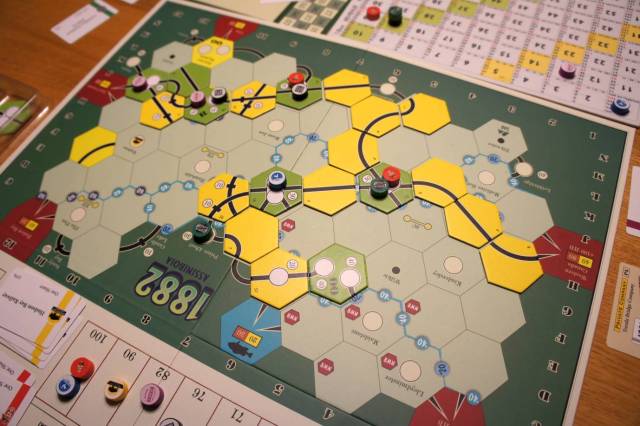We have a very good opinion about 1882. I bought the game from the designer and soon after that, it was released by AAG. Now we have a few copies of it in our group and it is quite popular during our meetings. Right now I have 12 plays under my belt. The last two of them were played during one night. After this night I wrote in my notebook: ‘do not play it again with this amount of players!’ Why? We played five players and during both games, one person was only an investor and did not start their own business. For me, it is a significant indicator that there are too many players for the number of companies in the game.
Both games ended in bankruptcy. The first time I decided to go bankrupt so as not to prolong the game. It was clear who was winning, I had no chance to win and one player was bored because he had no company. I, in turn, had two companies and I could arrange such a bankruptcy. Other players agreed because thanks to that we could play the same title again. We wanted to see if the first experience of someone not having a company was an exception and we put the game apart again.
The second game was very similar. The companies we operated were slightly different, but again one of the players (Michał from Olkusz) was an investor all the time. The game ended with the bankruptcy of Marcin from Olkusz. I will add that he had the opportunity to transfer his company to Michał without any funds. He missed this moment, however, such occasions have happened in our group sporadically.
Note: For both competitions, a state-owned company that uses neutral stations has not been launched.
First game:
Number of players: 5
Game time: 2 hours 25 minutes
Results: ended with my bankruptcy
Second game:
Number of players: 5
Game time: 1 hour 51 minutes
Results: ended with Marcin from Olkusz bankruptcy





Our group is in complete agreement with you. 4 is the optimum number for 1882 and 5 is just too many. I think it also makes it harder to start the state-owned company.
1882 is brutal. The train rush always runs all over me